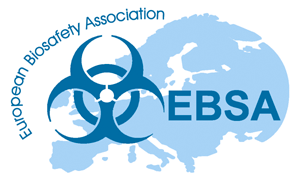About EBSA19 - Course B - Emergencies happen – are you prepared?
EBSA19 - Course B - Emergencies happen – are you prepared?
Course description
From minor lab mishaps to large accidents, biosafety professionals have a pivotal role in minimizing unwanted effects of biological agents when normal biosafety or biosecurity operational controls fail. The course introduces participants to emergency management and its key components (preparedness, response, contingency, crisis management, recovery and investigation). Assessment of credible emergency scenarios and integration of bio-risks in emergency plans should enable an organization to prepare (actors, infrastructure & equipment, procedures, business continuity and communication) for a reasonable response proportionate to the scale and nature of the emergency. Effective testing, communication and training approaches, including emergency exercises and simulations, will be discussed.
In the second part of the training, an introduction on how to set up an incident investigation process will be provided. Root cause analysis techniques and how they lead to corrective and preventive actions will be demonstrated. In addition to definitions, references and background information, examples will be developed on how a biosafety professional can prepare for such events, respond, keep records and identify effective corrective actions.
Participants will be able to practice the introduced tools on case studies covering minor as well as major emergency situations involving biological material. On this basis the participants shall be able to develop an emergency management plan, advise on its implementation and conduct an incident investigation. This makes the course of interest to biosafety professionals that will get involved in emergency preparedness and handling, as well as any handling emergency plans that include biosafety aspects
Main topics
- Basic concepts, the legal framework and reference documents for (bio) emergency management
- Emergency preparedness in the context of risk management, business continuity and corporate image
- Development and implementation of a bio-emergency plan and its key components (preparedness, response, contingency, crisis management, recovery and investigation)
- Introduction and application of incident investigation methods.
CWA16335:2011 Biosafety professional competence references:
7.2.15 Emergency preparedness and response
The biosafety professional shall be able to develop an emergency preparedness and response plan and advise on its implementation.
7.2.16 Incident and accident investigation
The biosafety professional shall understand methods of incident (including near misses) and accident investigation and shall be able to apply them and shall contribute to actions to prevent reoccurrence.
Instructors:
Patrick Rudelsheim
Walter Kempenaers
